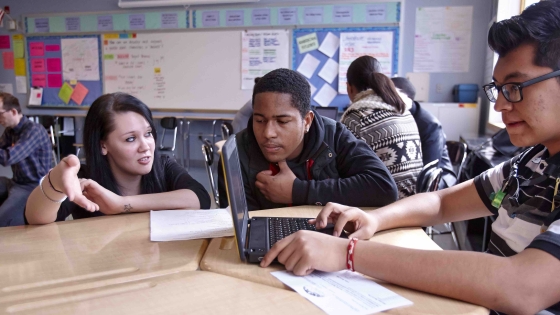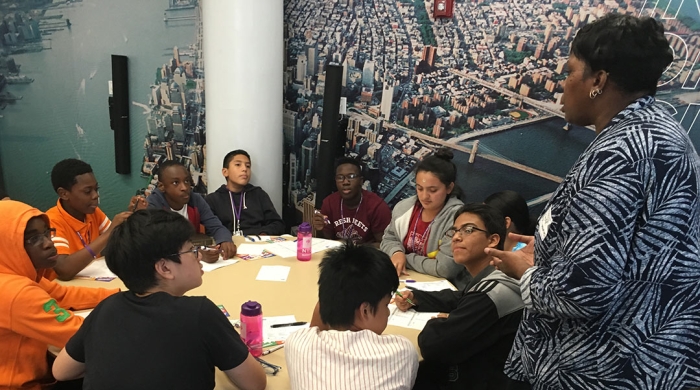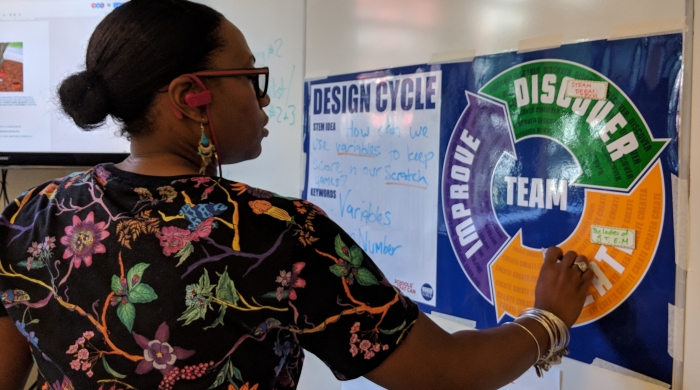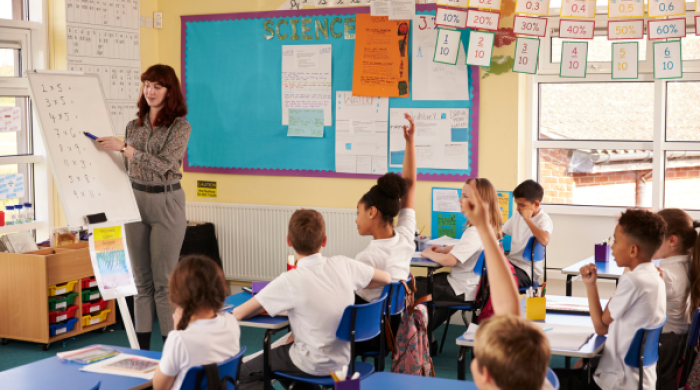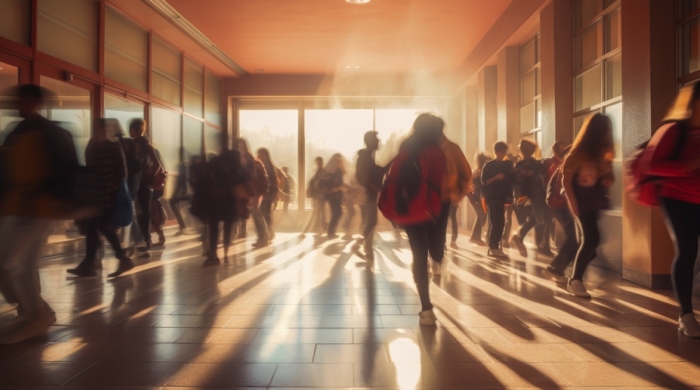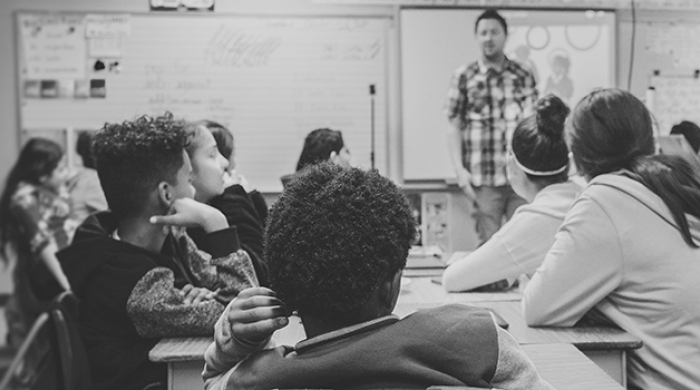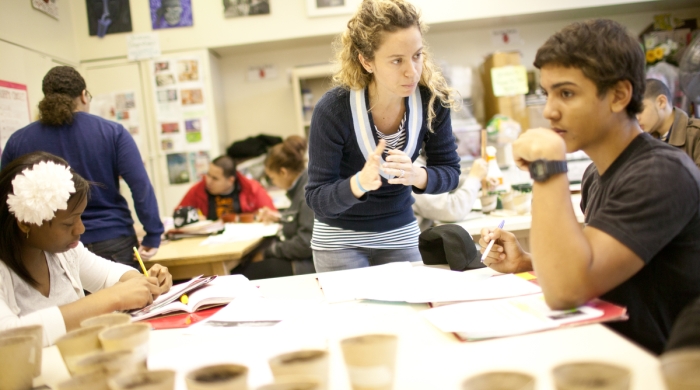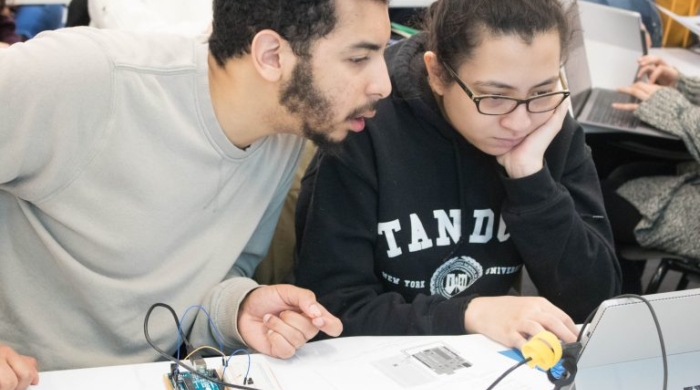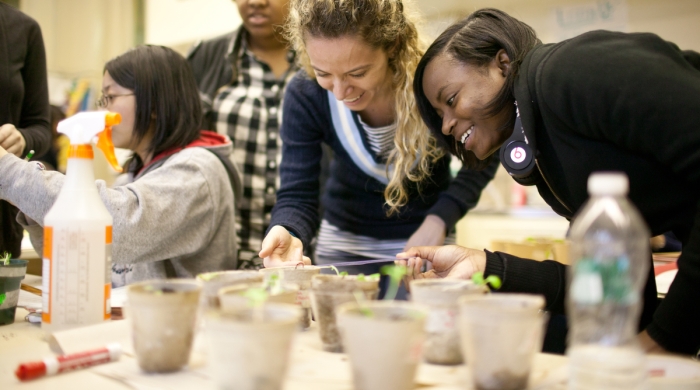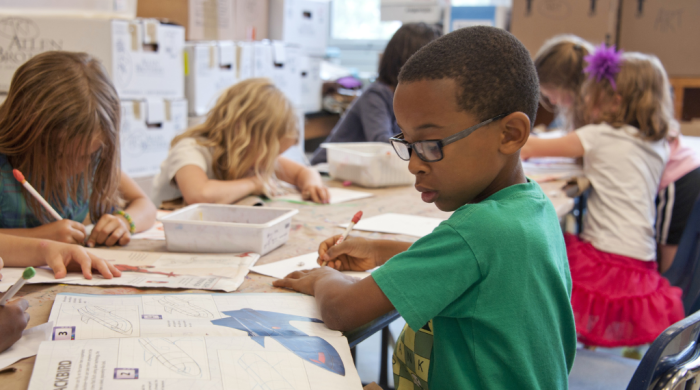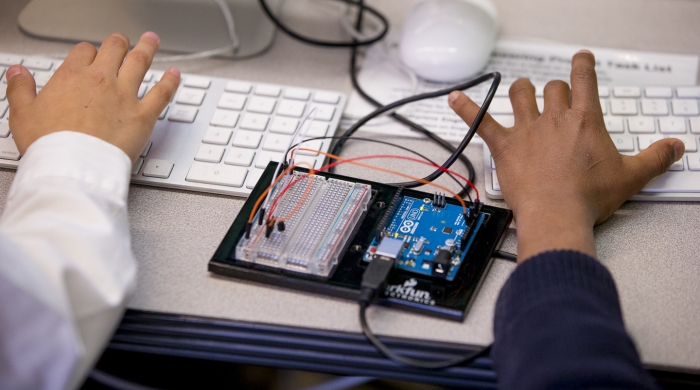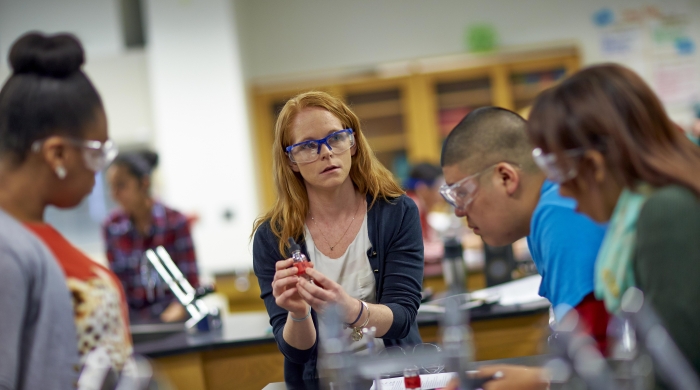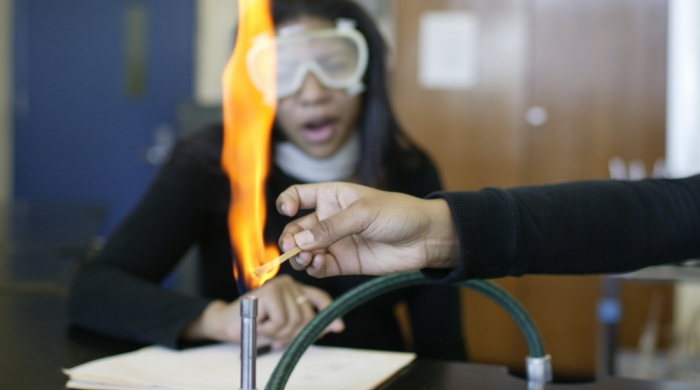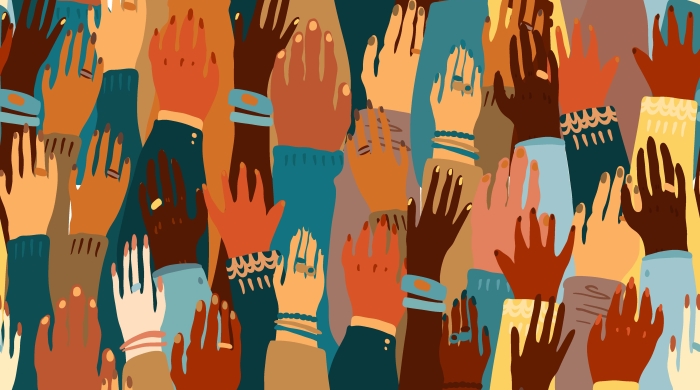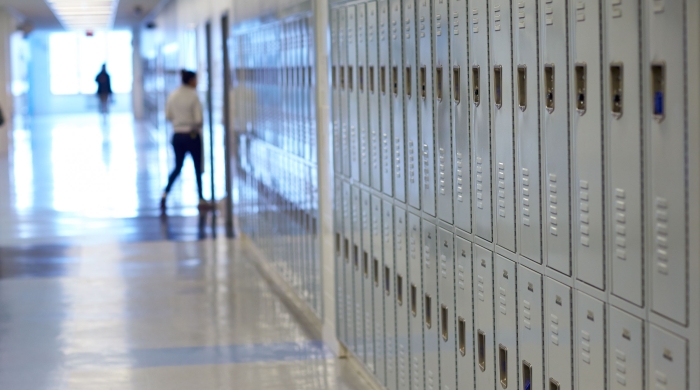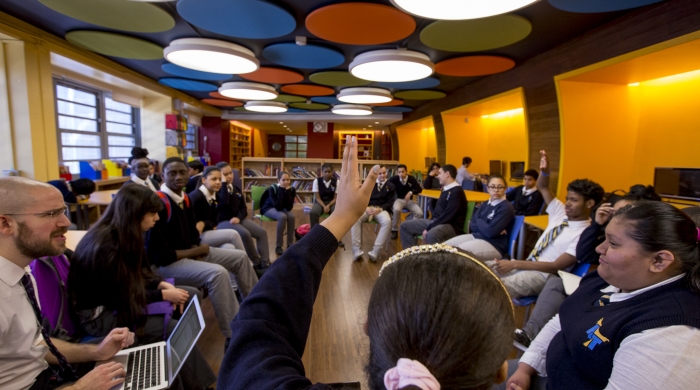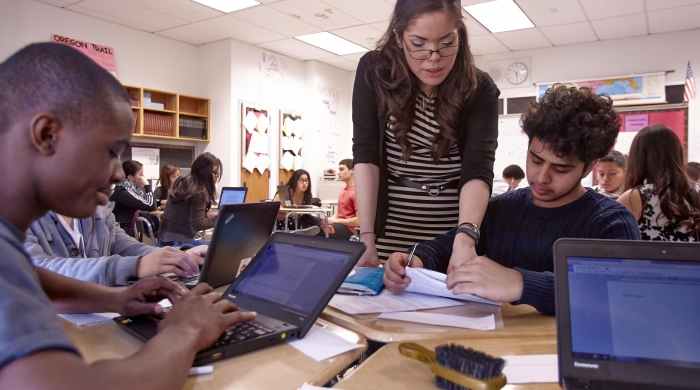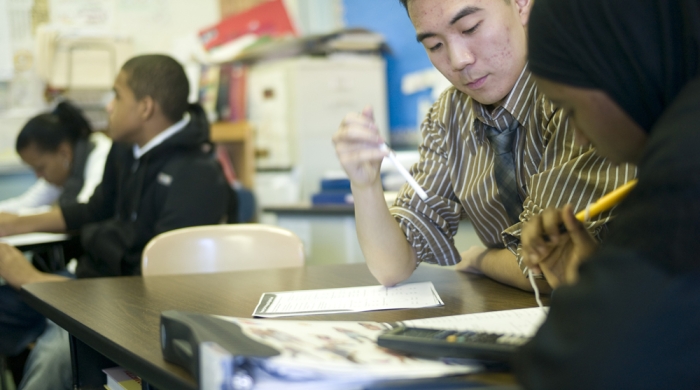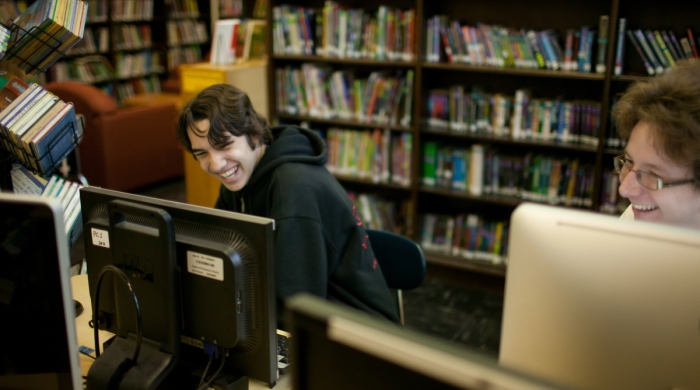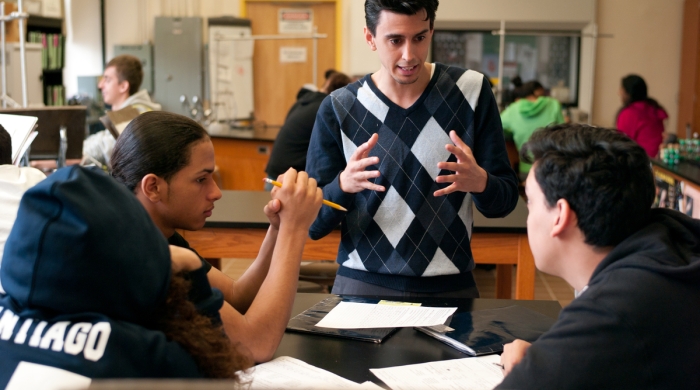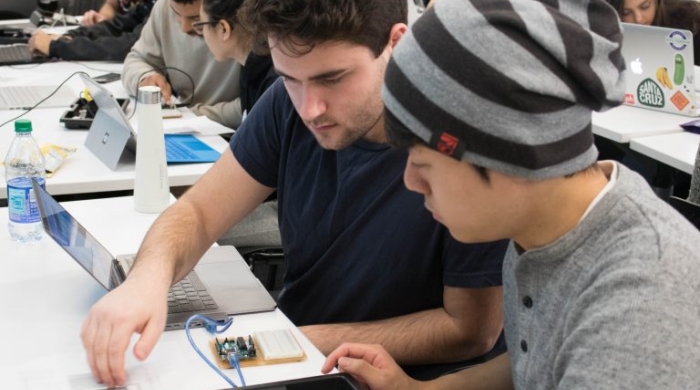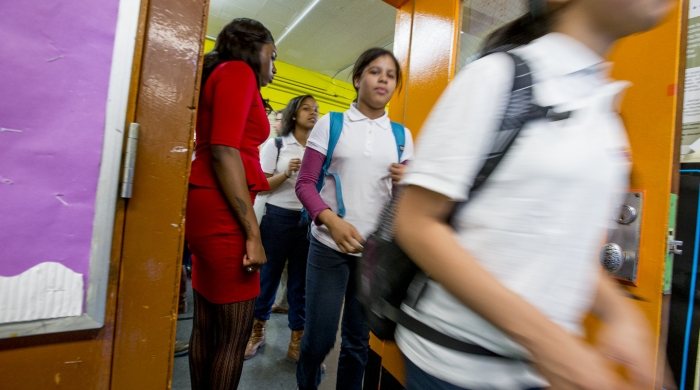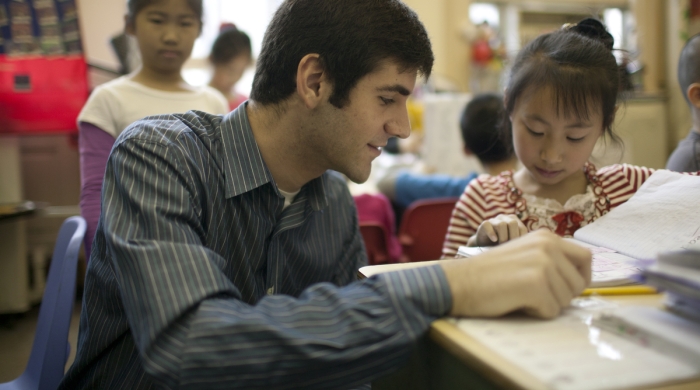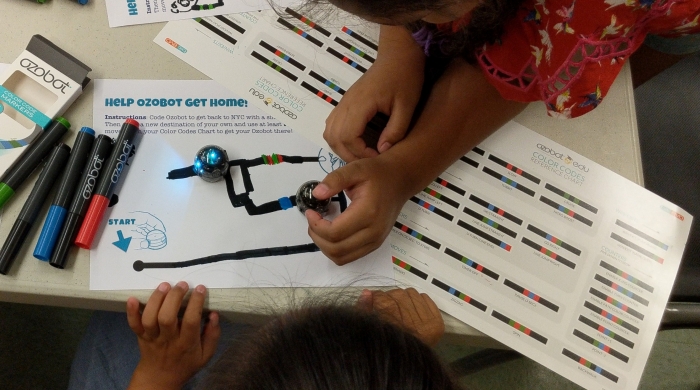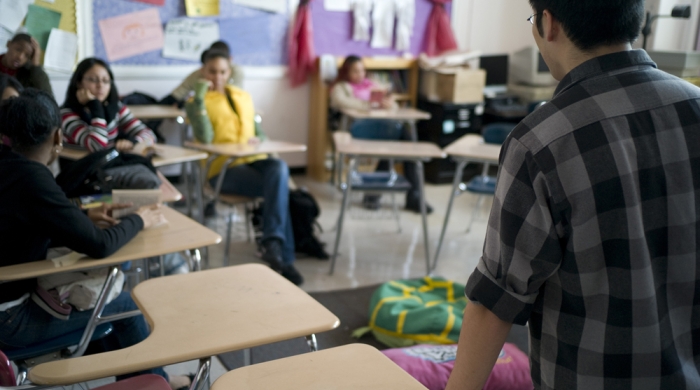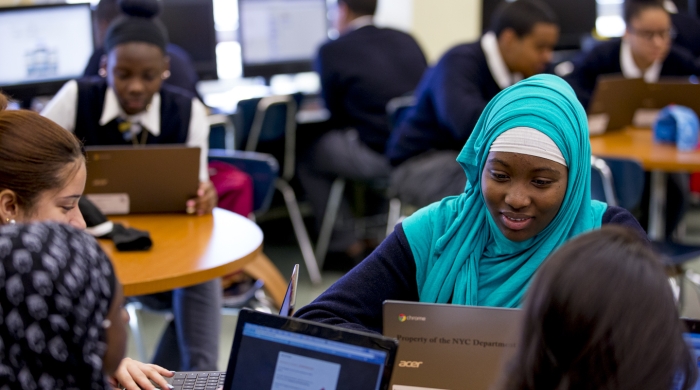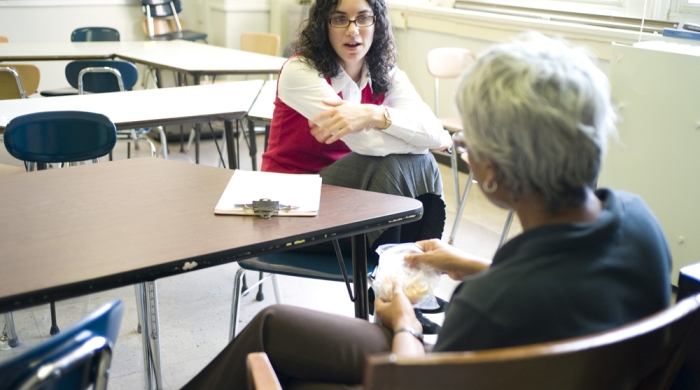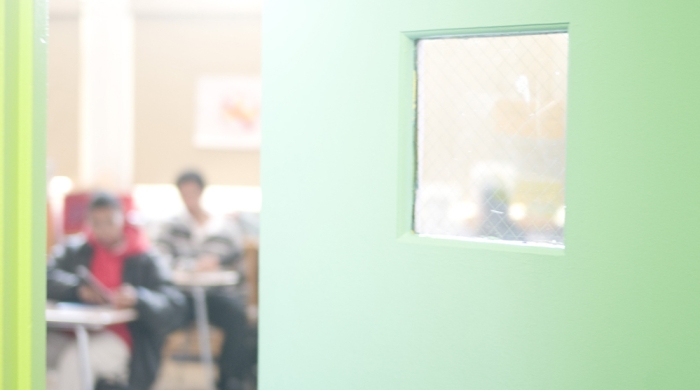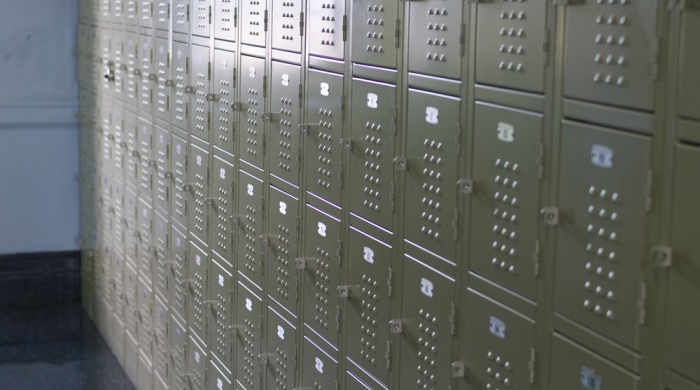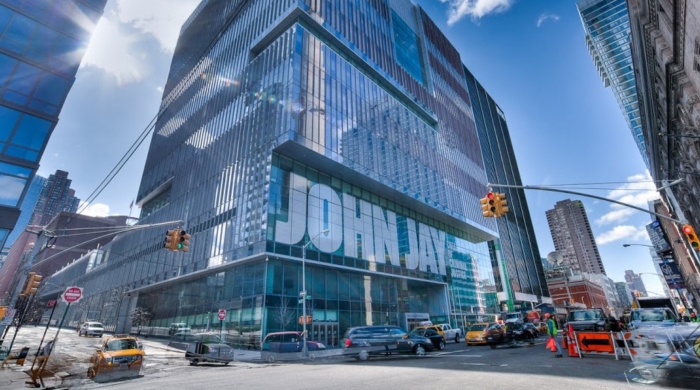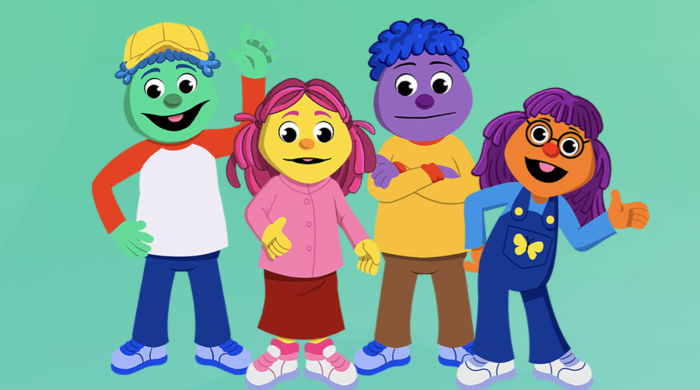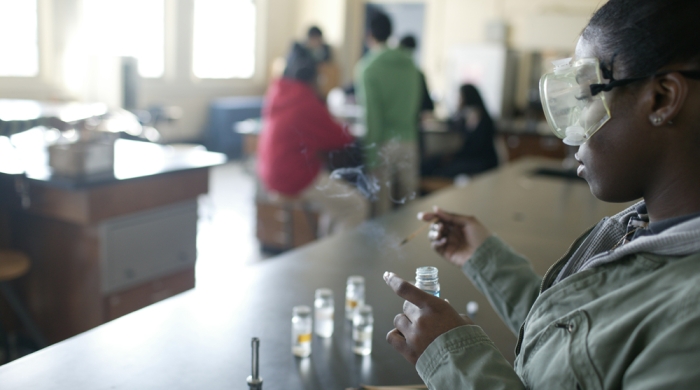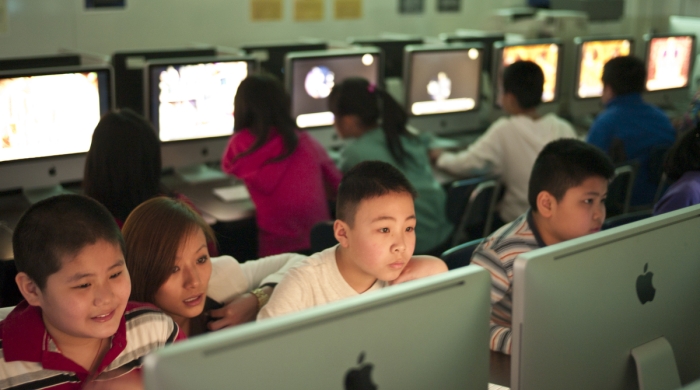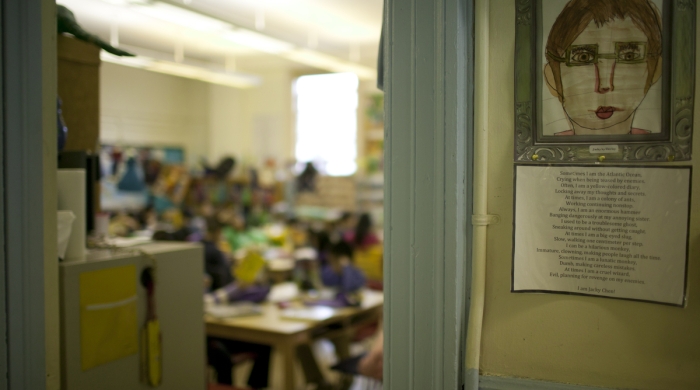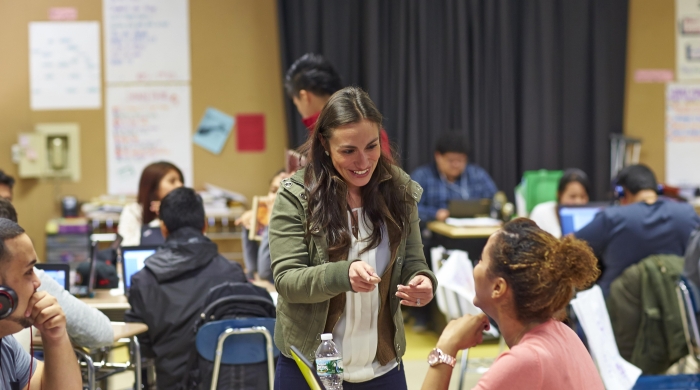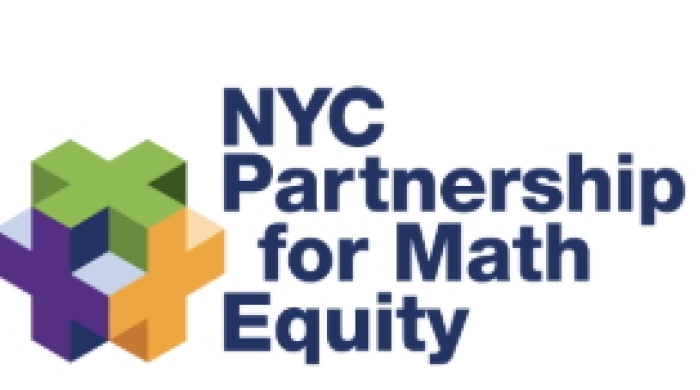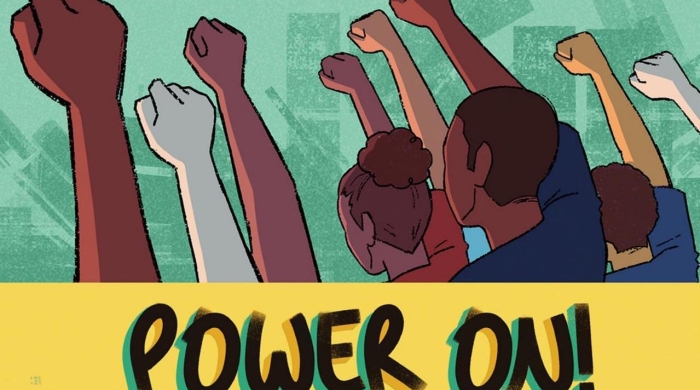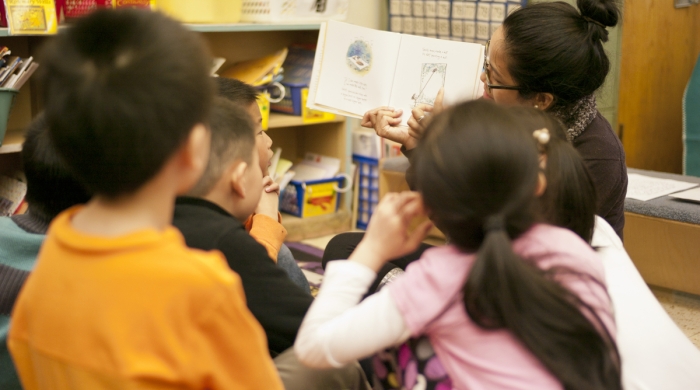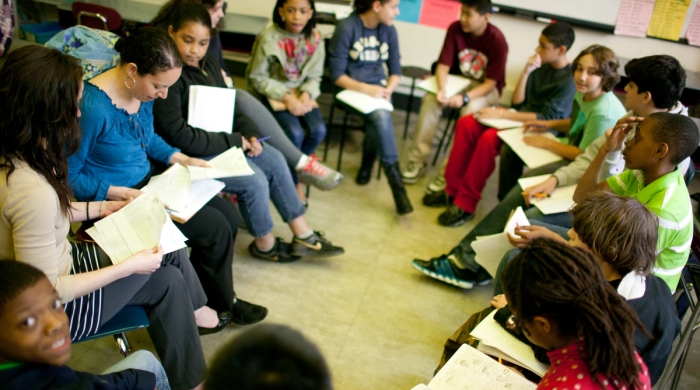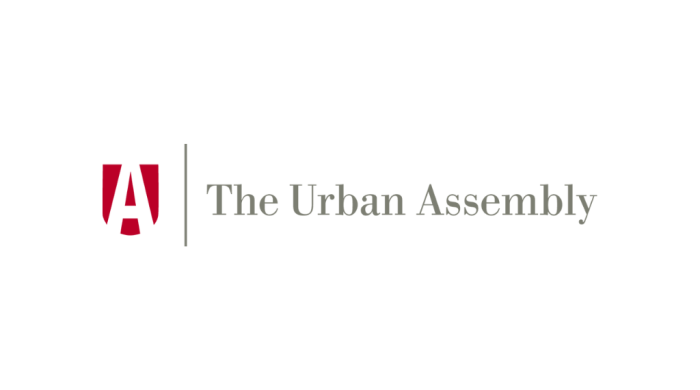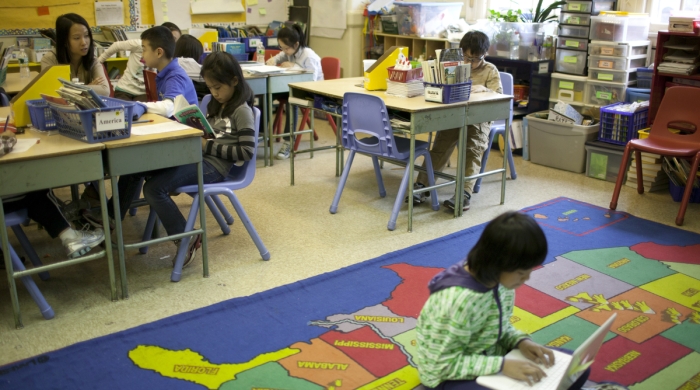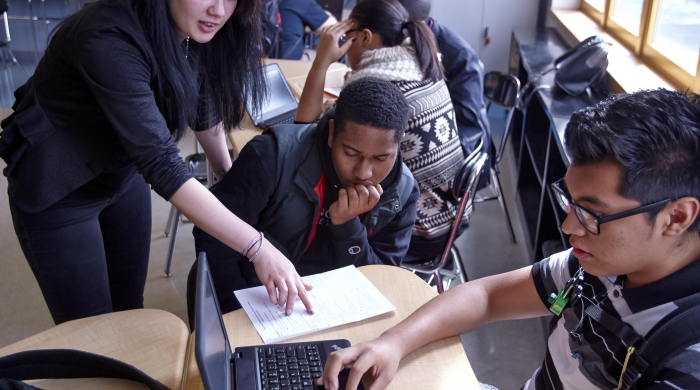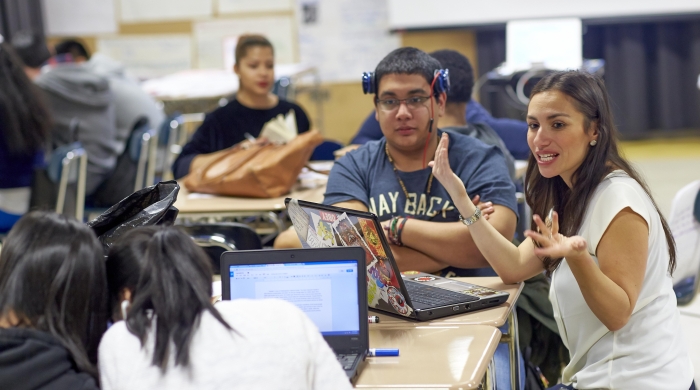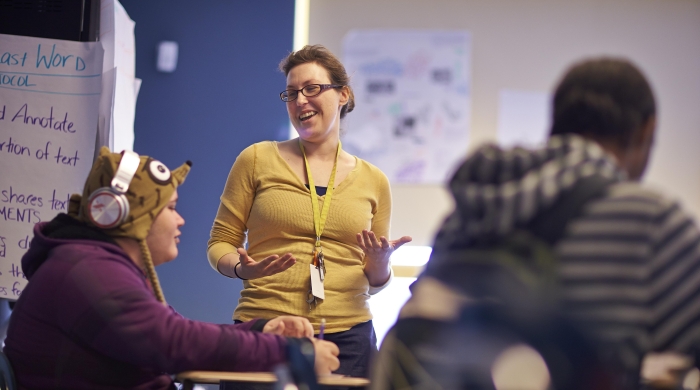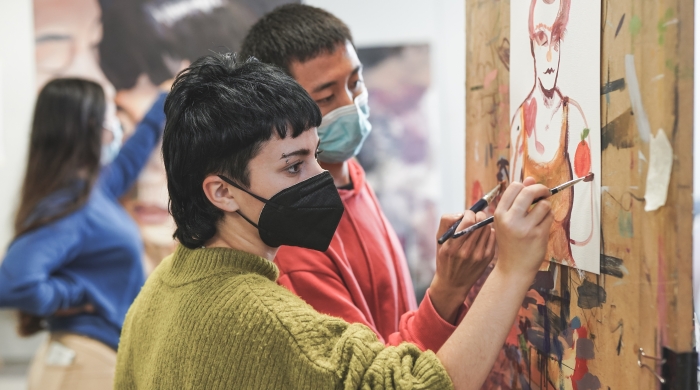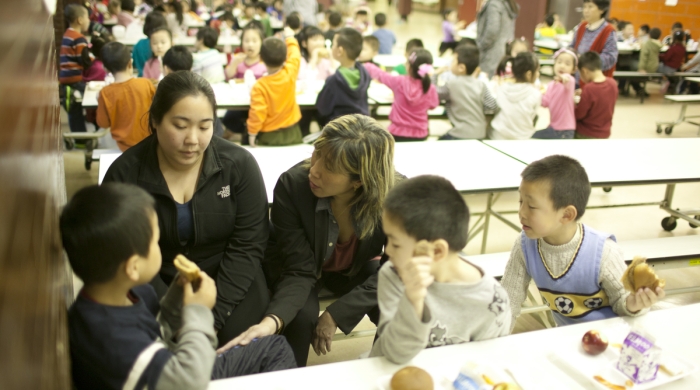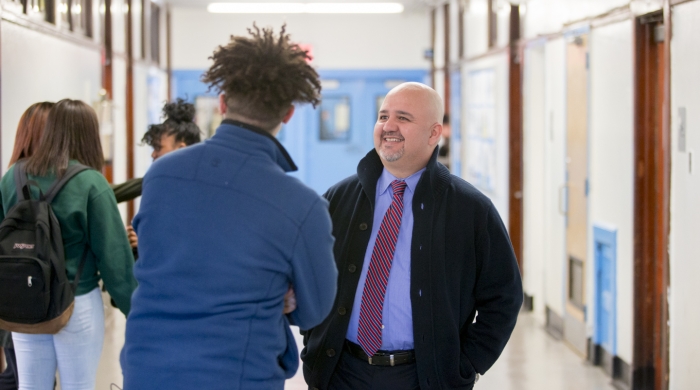
The Research Alliance conducts studies on topics that matter to NYC’s public schools. While these projects are diverse in their methods, scope, and focus, they all reflect our mission and core principles, including:
- High standards of scientific rigor,
- Relevance to education policy and practice,
- A commitment to nonpartisanship, and
- A commitment to advancing equity and racial justice in education.
Learn more by exploring Research Alliance projects sorted by student population or topic, or by scrolling through the list below.
Projects by Student Population
Explore our projects sorted by student populations spanning Pre-k through College.
Projects by Topic Area
Explore our projects sorted by topic area.
What's New at the Research Alliance
Taking Flight: Exploring Nest Student Outcomes After High School
What happens after high school for students in the Autism Nest Program? The Taking Flight study is following Nest graduates as they move into adulthood, exploring education, work, relationships, and quality of life metrics.
Expanding Opportunities for Transfer High School Students
In partnership with MDRC, the Research Alliance is studying the implementation and impact of innovative career-connected learning strategies in 10 NYC transfer schools.
Assessing the Quality and Reach of Student Pathways to Economic Security
The Research Alliance and MDRC are conducting an in-depth, exploratory study of NYC’s Pathways initiatives, including the FutureReadyNYC and Career Readiness and Modern Youth Apprenticeship (CRMYA) programs. The study is examining how the programs are being implemented, how student and school characteristics are related to student participation and access to career-connected learning opportunities, and how participation is associated with student outcomes.
Study of Saga’s Online Math Tutoring
Can online tutoring boost math achievement? As schools work to recover from pandemic-related learning disruptions, there is keen interest in the potential of high-dosage tutoring to accelerate students' progress in core subjects. In partnership with MDRC, the Research Alliance is studying the implementation and impact of Saga Education's live-online tutoring platform in NYC high schools.
Children First Retrospective
From 2002 to 2013, the Children First reforms represented one of the most ambitious efforts to transform a major urban school system anywhere in the United States. This study draws on in-depth interviews, a synthesis of existing research, and longitudinal analysis of system-wide outcomes data to understand the long-term legacy and impact of the Children First era.
Understanding the Unique Needs of Doubled-Up Students in NYC
Many students experiencing homelessness live in “doubled-up” situations. Our study aims to learn more about the needs and circumstances of NYC’s double-up student population, to provide actionable recommendations for better school support.
All Projects
ARIS: Educator Usage and Perceptions of a District-Wide Data System
Unveiled in 2008, New York City’s Achievement Reporting and Innovation System (ARIS) was one of the first district-wide investments in data-driven education reform in the United States, a major undertaking for the nation’s largest school district.
Assessing the Quality and Reach of Student Pathways to Economic Security
The Research Alliance and MDRC are conducting an in-depth, exploratory study of NYC’s Pathways initiatives, including the FutureReadyNYC and Career Readiness and Modern Youth Apprenticeship (CRMYA) programs. The study is examining how the programs are being implemented, how student and school characteristics are related to student participation and access to career-connected learning opportunities, and how participation is associated with student outcomes.
Beyond Access and Participation in CS for All
This study will develop and test measures of culturally responsive-sustaining education (CR-SE) in computer science—providing vital tools and evidence to inform the growing CS education field.
Children First Retrospective
From 2002 to 2013, the Children First reforms represented one of the most ambitious efforts to transform a major urban school system anywhere in the United States. This study draws on in-depth interviews, a synthesis of existing research, and longitudinal analysis of system-wide outcomes data to understand the long-term legacy and impact of the Children First era.
Collaboration with the Student Success Network
The Student Success Network (SSN) is a group of about 80 youth development and education organizations (including schools) that have coalesced around the goal of measuring and improving students’ social emotional learning skills.
Computational Thinking Readiness for All
This project will field-test a self-assessment tool designed to help elementary schools create CT integration plans and support the provision of equitable access to CT education for students from traditionally underrepresented groups.
CTE Innovation and Impact: Lessons from NYC
This project is leveraging the diversity and scale of NYC's CTE programs to learn about the conditions under which CTE is most effective
Data In Use
Recent years have seen a tremendous growth in data-driven initiatives aimed at improving schools, including instructional techniques and accountability systems that rely heavily on using and interpreting data.
Design2Learn: An Evaluation of Implementation and Impact
Design2Learn is an afterschool program for students in middle school—a period in which student performance in science often declines sharply.
Developing Equity Indicators for NYC Schools
The Research Alliance is developing a set of education equity indicators aimed at informing policy decisions and enhancing public understanding of educational inequality in New York City.
Disrupting School Pushout
Exploring how systemic racism and disinvestment drive the phenomenon of "school pushout" in NYC, this study examines the impact of neighborhood-, school-, and individual-level factors on students' high school completion.
Equity, Access, and Diversity in NYC Schools
One of the most significant challenges facing schools in New York City and around the nation lies in their relationship to larger societal inequalities.
Evaluating the Expanded Success Initiative
The Expanded Success Initiative (ESI) was designed to improve the educational experiences and outcomes of Black and Latino young men in high schools across the City. To gain an understanding of whether, and how, ESI benefitted students, the Research Alliance undertook a five-year mixed-methods longitudinal evaluation of the initiative.
Evaluating iMentor’s School-Wide College Ready Program
iMentor is a nonprofit organization that provides school-based mentoring, with a focus on helping students develop the skills they need to be prepared for and succeed in college.
Evaluating P-TECH
MDRC is conducting a study of the NYC P-TECH Grades 9-14 school model. The Research Alliance is supporting MDRC’s work by advising on research design and analyses, helping identify appropriate samples of students for the study, and constructing longitudinal data files needed to evaluate P-TECH’s implementation and impact.
Evaluating the Outcomes of the Center for Racial Justice in Education
By examining the experiences of schools participating in the Center for Racial Justice in Education’s training, this study contributes to a growing body of research on equity in education and addressing racial injustice in the classroom.
Evaluating the Reach, Quality, and Impact of Computer Science for All in NYC
CS4All is a 10-year, $81 million public-private partnership between the City of New York and the private sector, designed to bring computer science education to every student in NYC public schools.
Evaluating the Safe Public Spaces Program
Research has demonstrated important connections between students’ sense of safety—both physical and emotional—inside their schools and outcomes such as academic effort and achievement.
Evaluation of the InnovateNYC Ecosystem
The New York City Department of Education’s InnovateNYC Ecosystem aims to transform the DOE’s procurement process for education technology tools, thereby raising the quantity and quality of technology in NYC classrooms.
Evaluating the ExpandEd Schools STEM Options Program
The study is aimed at better understanding how many and which students are interested in STEM apprenticeships, documenting students’ experiences in the programs, and assessing how the programs shape students’ interest and engagement in STEM subjects and fields.
Examining and Addressing Barriers that Hinder Schools’ Progress Toward CS for All
This study will foster a better understanding of the challenges faced by schools that are lagging behind in providing computer science education to all of their students, and identify supports and strategies to help them make progress.
Examining Teacher Leader Diversity in NYC Schools
This study explores the role of teacher leaders of color in fostering inclusive and supportive learning environments, including effects on school hiring and retention practices, as well as the broader school climate.
Expanding Opportunities for Transfer High School Students
In partnership with MDRC, the Research Alliance is studying the implementation and impact of innovative career-connected learning strategies in 10 NYC transfer schools.
Exploring How High Schools Can More Effectively Serve Immigrant Youth
The Internationals Network for Public Schools (INPS) is a system of public high schools that serve recently arrived students with low levels of English language proficiency.
Frameworks to Support Teaching and Learning
The Research Alliance is continuing our partnership with the NYC DOE to define, measure, and support effective learning environments in NYC schools.
High School Choice Decision Supports
New York City is home to the largest high school choice program in the country. Since 2004, all City 8th graders have been required to rank their 12 preferred high school programs (in 2014-2015, there are over 700 programs offered in 400 schools).
High School Choice in New York City
In recent years, policymakers across the country have instituted school choice policies, which aim to increase equity and narrow achievement gaps by offering students access to a wide range of schools, including schools outside their home neighborhood.
High School Closures in NYC
In New York City, between the 2001-2002 and 2008-2009 school years, the Department of Education identified and scheduled 29 large low-performing high schools for closure. This was part of a larger reform effort that included opening smaller high schools throughout the City and implementing a new system of universal high school choice.
Identifying Strong Transfer Pathways
The Research Alliance is conducting a case study of John Jay's CUNY Justice Academy to understand the practices it uses to support transfer students.
INSIGHTS: Examining Effects of Social-Emotional Learning in Early Education on Longer-Term Student Outcomes
The Research Alliance is collaborating with MDRC on a study that will examine INSIGHTS’ impact on students’ outcomes in middle and high school.
Keeping 9th Grade Students “On Track” to Graduation
As early as 9th grade, student engagement and achievement can offer strong signals about which students are on the path to on-time graduation, and which are at risk of dropping out.
Maker Partnership
In collaboration with Schools That Can and MakerState, the Research Alliance is evaluating the implementation of Maker Partnership curriculum and professional development.
Middle School Teacher Turnover
Some amount of teacher turnover is generally thought to be constructive, as it brings new ideas, energy, and skills to schools. However, research suggests that too much turnover may have serious instructional, financial, and organizational costs.
The NYC Partnership for College Readiness and Success
This partnership between CUNY, the NYC DOE, and the Research Alliance is bringing together the key stakeholders who focus on secondary and post-secondary education in New York City, enabling researchers to link together CUNY and DOE student data.
NYC Partnership for Math Equity
This study investigates how supplemental digital math lessons can enhance students’ mathematical engagement, collaboration, and achievement, with a focus on Black, Latinx, and low-income middle-grade students.
Power On! In NYC Classrooms
As an extension of the Research Alliance’s ongoing evaluation of the CS4All initiative, we are collaborating with UCLA’s CS Equity Project to understand the use and outcomes of Power On! in NYC public schools.
Pre-K for All in New York City
This research-practice partnership is supporting the roll out of Pre-K For All in NYC and providing evidence to help improve the quality of pre-k programming.
Reclassification of English Language Learners in NYC
In the 2012-2013 school year, the NYC Department of Education served 145,000 students designated as English language learners (ELLs)—nearly 15 percent of the total student population.
Scaling Up ParentCorps in NYC
The Research Alliance for NYC Schools provides support for ParentCorps by advising on the research design and analyses, linking project-specific data with administrative records, and constructing longitudinal data files to assess implementation and impacts.
School of One Impact on Middle School Math Achievement
In the 2010-2011 academic year, three New York City middle schools began piloting School of One (SO1), a program that leverages data to individualize math instruction.
Special Education in NYC: A Landscape Analysis
This project filled important gaps in our knowledge about how and where students with disabilities are being served in New York City. The study illuminated inequities, as well as areas of progress, and laid a valuable foundation for future research.
Student Transitions Through the Middle Grades
Educators have long asserted that the middle grades are a time of both great importance and vulnerability. Anecdotal and empirical evidence suggest that students encounter new social and emotional challenges, increased academic demands, and major developmental transitions during these years.
Study of the Urban Assembly Network
The Research Alliance for New York City Schools is collaborating with MDRC on a rigorous study of the effects of the Urban Assembly school support network on students’ academic and social emotional outcomes.
Supporting the #DegreesNYC Data Co-op and Learning Network
This project will work to identify key indicators of being on track for success in postsecondary education and career pathways, and empirically test the relationship between those indicators and student outcomes.
Supporting AIR's Study of Deeper Learning
The Research Alliance is collaborating with AIR to support the study’s examination of NYC schools that have adopted deeper learning principles and practices.
Supporting the Development and Evaluation of Early Warning and College-Readiness Indicator Systems
The power of early warning and college-readiness indicator systems is that they take messy, seemingly overwhelming problems—such as getting students to graduate from high school and persist in college—and focus attention on opportunities to successfully intervene.
Taking Flight: Exploring Nest Student Outcomes After High School
What happens after high school for students in the Autism Nest Program? The Taking Flight study is following Nest graduates as they move into adulthood, exploring education, work, relationships, and quality of life metrics.
Technical Assistance for the Teagle Foundation’s College-Community Connections Program
The Teagle Foundation’s College-Community Connections (CCC) program aims to help financially disadvantaged high school students overcome the barriers they face in pursuing an undergraduate degree.
The Center for the Success of English Learners
The Research Alliance for New York City Schools is supporting Dr. Michael Kieffer's work leading CSEL’s policy strand. This research explores how policies, structures, and system-level practices may constrain or enhance secondary English Learners' access to the general curriculum.
Turnaround Middle Schools
What can be learned from low-performing middle schools that have beaten the odds and substantially improved student performance?
Understanding Disparities in the Impact of Covid-19 for High School Students
This study will examine how the pandemic shifted high school students’ academic trajectories, especially in historically underserved and marginalized communities.
Understanding the Gap in Participation in Summer Meals Programs
In partnership with Share Our Strength, the Research Alliance is conducting a qualitative study to learn about families’ participation in summer meals programs, including barriers that may prevent low-income families from taking advantage of such programs.
Understanding the Impact of Small High Schools of Choice
Since 1999, the landscape of New York City high schools has changed dramatically. Over 150 new high schools have opened, with an average enrollment of just over 100 students per grade.
Understanding the Unique Needs of Doubled-Up Students in NYC
Many students experiencing homelessness live in “doubled-up” situations. Our study aims to learn more about the needs and circumstances of NYC’s double-up student population, to provide actionable recommendations for better school support.

